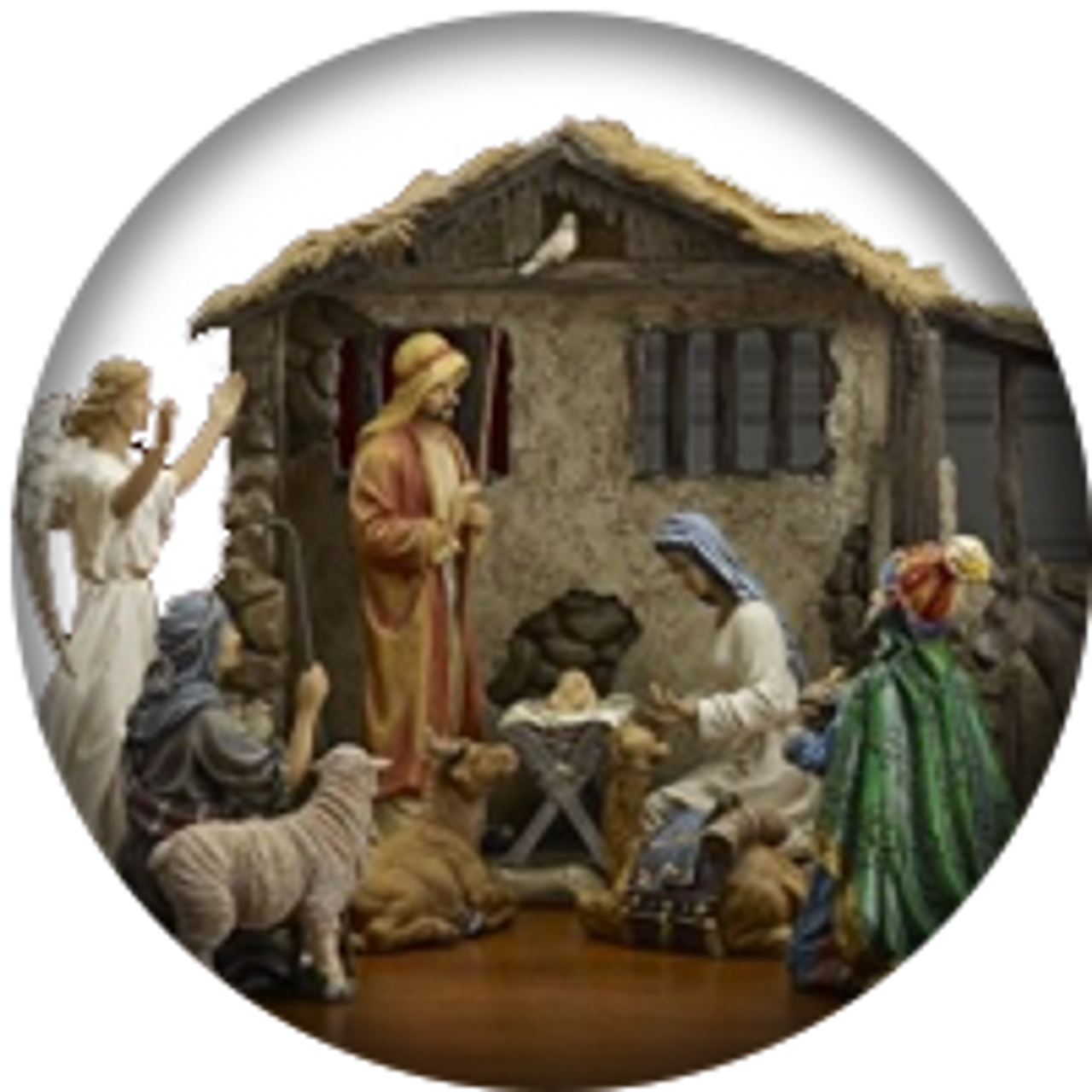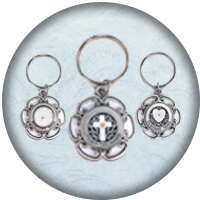THE PASCHAL MYSTERY AND DIVINE MERCY
Kathy Boh on 26th Mar 2015
THE PASCHAL MYSTERY AND DIVINE MERCY
THE PASCHAL MYSTERY
“The greatest gift of Divine Mercy that each of us has been given is our salvation through the Passion, death, and Resurrection of Jesus Christ. This is the good News of the Gospel that we are impelled to share as witnesses of God’s mercy. This is the main reason why God’s mercy is ‘a source of hope for every person and for the whole world,’ as Pope Benedict puts it… If we want to spread Divine Mercy… this Gospel of Mercy must be our central focus. We should always remember that we are not only called to proclaim it but to live it ourselves.” [p.45]***
“… [Pope] Benedict has always placed mercy—God’s mercy—right at the heart of the paschal mystery… God in His mercy has taken the initiative in saving us through Christ. Our task is to trust in His mercy and be merciful to others ourselves. This does not belittle human mercy at all. Remember Benedict’s insightful image of the Good Samaritan being ‘struck in his soul by the lightning flash of mercy.’ Our mercy towards those in need is imperative, but it needs to flow from God’s mercy and grace toward us to have staying power in our lives.” [p.139-40]***
“…Even now, the compassionate ‘gaze’ of Christ continues to fall upon individuals and peoples. He watches them, knowing that the divine “plan” includes their call to salvation. Jesus knows the perils that put this plan at risk, and he is moved with pity for the crowds. He chooses to defend them from the wolves even at the cost of his own life. The gaze of Jesus embraces individuals and multitudes, and he brings them all before the Father, offering himself as a sacrifice for expiation…
[The saints] know that he who does not give God gives too little; as Blessed Teresa of Calcutta frequently observed frequently observed, the worst poverty is not to know Christ. Therefore, we must help other to find God in the merciful face of Christ.” (Lenten message, 2006, Pope Benedict XVI) [pp. 32-34]***
‘It is in the mystery of the Cross that the overwhelming power of the Heavenly Father’s mercy is revealed in all its fullness,’ the Pope said. ‘In order to win back the love of his creature, he accepted to pay a very high price: the Blood of his Only Begotten Son.’ …‘We are exhorted to come out of ourselves in order to open ourselves in trustful abandonment to the merciful embrace of the Father.’ “ [pp.34-35]***
“For Lent 2007, Pope Benedict’s theme [was] the Scripture passage, “They shall look on him whom they have pierced” (Jn 19:37). He weaves in mercy by bringing us to the foot of the Cross...’ [p.35] ‘The Lord took his wounds with him to eternity. He is a wounded God; he let himself be injured through his love... His wounds are a sign that he understands and allows himself to be wounded out of love for us.
These wounds of his: how tangible they are to us in the history of our time! Indeed, time and again, he allows himself to be wounded for our sake. What certainty of his mercy, what consolation do his wounds mean for us!...And what a duty they are for us, the duty to allow ourselves in turn to be wounded for him!’ (Pope Benedict XVI, Divine Mercy Sunday, April 15, 2007)
These powerful words of our Holy Father are enough to leave you speechless. He is saying that since Christ brought His glorified body with its wounds into eternity, He now reigns as a wounded God. His wounds are a tangible sign that He understands our plight, and even now, in ways we can’t fathom, He allows Himself to be wounded out of love for us.” [p. 38]***
“The Wounded Draw God’s Mercy” “We tend to think we need to walk up the mountain in search of God at the top—closer to heaven and out of this world. God, however, walks down the mountain and into our noisy, busy marketplace in search of us. We are his children, so lost and so endangered in the strife of this earthly world. We are all wounded and waiting for the medic to come and save us. It is the vulnerable child that parents long to assist, and the child with special needs who inspires deep compassion. It is the sinner who calls forth mercy and forgiveness. Our sinfulness brought us our Redeemer, the God made human and vulnerable like us in order to save us. God writes straight with crooked lines. We are not all called to live in a monastery or to find a gated community of some kind that insulates us from the poor and the disadvantaged. We are called as Christians to be God’s love in the midst of the turmoil and confusion of the daily newspapers. What a happy fault that our darkness brought Jesus down to us in order to lift us up to the light with him.”*
“In the end, Christ himself, the slaughtered Lamb, calls to all peoples: ‘So come, you of all races of men who are ensnared by your sins and receive forgiveness, the Passover of your salvation; I am the Lamb slain for you; I am your redemption, your way, your resurrection, your light, your salvation, and your king. It is I who lead you to the heights of Heaven, I who will show you the Father who exists from eternity, I who will raise you to life with my right hand.’ “ (General Audience, March 31, 2004, St. John Paul II) **
PASSOVER/ PESACH
“ ‘Christians and Jews share [the hope of freedom and redemption through the Covenant]; we are in fact, as the prophets say, “prisoners of hope” (Zech 9:12). This bond permits us Christians to celebrate alongside you, though in our own way, the Passover of Christ’s death and Resurrection, which we see as inseparable from your own, for Jesus himself said, “Salvation is from the Jews (Jn 4:22). Our Easter and your Pesach, while distinct and different, unite us in our common hope centered on God and his mercy.’ (Pope Benedict XVI, April 17, 2008) The Pope is saying that both the Jews’ liberation through Moses from slavery in Egypt and our liberation through Christ from the bondage of sin, death, and the devil come from the same source: God’s mercy.” [p. 42]***
GOD’S MERCY AND FORGIVENESS
“Jonah sailed away from the mercy and forgiveness God wanted him to preach, but not because he was afraid of abuse by those to whom he came to preach God’s word. Even after his deliverance from his three-day ordeal in the belly of the whale, Jonah was reluctant to offer mercy to Israel’s enemy. He did not want the inhabitants of that great city, which had invaded his homeland, to be forgiven. Nineveh was a city so large that it mimicked the whole world and all the world’s sins. Jonah wanted all Ninevites punished for their sins, even children and dumb animals. Nineveh, he was determined, was not to receive God’s mercy delivered in person by Jonah’s preaching. When Jonah had total success and all the people and even the animals repented and were forgiven, Jonah pouted instead of rejoicing that salvation had come to the world.
Jesus came to preach to Jerusalem God’s mercy, but that mercy did not endear him to those lording it over their own people. Jesus would become like Jonah—cast out of the city and entombed for three days as Jonah was in the whale. The gospel warns us that we can disrespect the forgiveness being offered to us in the life and death of Jesus, but just like Jonah, we cannot hide. God’s tender mercy will find us.” (“The Reluctant Prophet”)*
DIVINE MERCY VISION
“Now, in our day, Divine Mercy also refers to a particular message…given to St. Faustina by Jesus in the 1930’s… It is as if God has put a spotlight on our world situation through St. Faustina, emphasizing Divine mercy as an urgent message for our troubled time.”[p.11]***
“On February 22, 1931, a young Polish nun, Sr. Faustina Kowalska, saw a vision of Jesus with rays of mercy streaming from the area of His Heart… He taught her that His mercy is unlimited and available even to the greatest sinners… On the Sunday after Easter, April 30, 2000 (Mercy Sunday), Sister Faustina was solemnly canonized in Rome by Pope John Paul II. The Pope also established Mercy Sunday worldwide.” **** “This message and the devotions associated with it call us to trust in Jesus as our merciful Savior, to receive His mercy, and share that mercy with others.”[p.11]***
ST. JOHN PAUL II
Pope John Paul II visited the tomb of St. Faustina in Poland at the Shrine of The Divine Mercy on June 7,1997. “During that visit, [he] made these poignant remarks: ‘I come here to commend the concerns of the Church and of humanity to the merciful Christ. On the threshold of the third millennium, I come to entrust to him once more my Petrine ministry—“Jesus, I trust in you!” The message of Divine Mercy has always been near and dear to me. It is as if history had inscribed it in the tragic experience of World War II… This was also my own personal experience…” [p.131-2]***
“The Servant of God John Paul II had known and personally experienced the terrible tragedies of the 20th century and for a long time wondered what could stem the tide of evil. The answer could only be found in God’s love. In fact, only Divine Mercy is able to impose limitations on evil; only the almighty love of God can defeat the tyranny of the wicked and the destructive power of selfishness and hate. For this reason, during his last visit to Poland (August 17, 2002), he said on his return to the land of his birth: ‘Apart from the mercy of God there is no other source of hope for mankind’ [Pope Benedict XVI, April 2, 2008, 3rd Anniversary Mass for St. John Paul’s death][p.56]***
John Paul II died on April 2, 2005, on the eve of Divine Mercy Sunday. Pope John Paul II had prepared a [“Regina Caeli”] message for Divine Mercy Sunday, April 3, 2005. Included were the words, “As a gift to humanity, which sometimes seems bewildered and overwhelmed by the power of evil, selfishness and fear, the Risen Lord offers his love that pardons, reconciles and reopens hearts and gives peace. How much the world needs to understand and accept Divine Mercy!” [p. 18]***
“On Calvary, Divine Mercy manifested his face of love and forgiveness for everyone. In the Upper Room after his Resurrection, Jesus entrusted the Apostles with the task of being ministers of this mercy, a source of reconciliation among men and women.” (Pope John Paul II, April 14, 2004, General Audience).**
POPE BENEDICT XVI CONTINUES THE FOCUS
Cardinal Christoph Schonborn “presented the idea for the [initial] Congress [World Congress on Divine Mercy] to Benedict in 2006… [O]n April 6, 2008, as president of the Congress, he” spoke of “being witnesses of ‘His immeasurable mercy.’ … ‘Be merciful as your Father is merciful.’ How many times in living and performing simple works of mercy have we been able to experience the closeness of the Lord. ‘The history of the success of Christianity is not a story of military triumphs or political triumphs,’ he continued. ‘It is rather the triumph of living mercy… [W]ords can be beautiful, but in the end they are only words. But the acts of mercy, instead, are indisputable.’ “[p.140-42]***
Pope Benedict XVI continued the focus on Divine Mercy. “It’s important… to explain that Pope Benedict usually uses ‘God’s mercy’ and ‘Divine Mercy’ interchangeably to refer to the mystery of God’s mercy toward us… [He] speaks of the call to ‘be witnesses of God’s mercy’. In both cases he is speaking of the same reality, whether he calls it ‘God’s mercy’ or ‘Divine Mercy’.“[p.11]***
“…[D]uring his General Audience in St. Peter’s Square on October 18, 2006… Pope Benedict” spoke of the “betrayal of Jesus by Judas Iscariot” and how it “reveals that God is ‘rich in mercy and forgiveness.’ “ [p.77] “Pope Benedict… makes clear that Satan is the main adversary working through Judas.” [p.81] “Here, it is helpful to remember the words of St. Paul: ‘For our struggle is not with flesh and blood but with the principalities, with the powers, with the world rulers of this present darkness, with the evil spirits in the heavens’ (Eph 6:12). With all this in mind, we need to realize that we are engaged in spiritual warfare against Satan when we see evil at work in our lives, in the lives of others, and in our world. Jesus has the victory and is, indeed, seated at God’s right hand in glory. Here on earth, though, Satan seeks to oppose Him at every turn and tempts human beings to join him.” [p.82]***
“At the end of his General Audience, Pope Benedict encourages us to ‘never despair of God’s mercy,’ because the love and mercy of God will always win out in the end…. [p.83] Pope Benedict is saying that Judas, in a mysterious way, advanced God’s ultimate purpose, which was and is to save us from our sins. Thus, God in Christ thwarted the evil designs of Satan and of Judas in achieving precisely the good of our salvation! Inspired by this triumph of God’s mercy over evil, let’s decide anew to place our complete trust in Jesus, our Redeemer.” [p.84]***
“God’s mercy is intended for all sinners… God alone is qualified to sit in judgment over human hearts… [I]n our battle against evil, we should be mindful that Satan, not human beings, is our main adversary. Therefore, we should engage in spiritual warfare for the salvation of souls.” [p.86]***
At the” ‘first World Apostolic Congress on Divine Mercy’… [Pope Benedict] tells us to ‘go forth and be witnesses of God’s mercy,’ not our own human mercy… “ for “it is God’s mercy and not our own, which is a ‘source of hope for every person and for the whole world.’ Here, Pope Benedict is not simply splitting hairs. He is clearly placing the emphasis on God’s mercy toward us in our need, as the starting point.” [p.139]***
“Pope Benedict develops this theme further. ‘To be able to perceive his mercy it suffices to have a heart that is alert. We are excessively inclined to notice only the daily effort that has been imposed upon [us] as children of Adam.’ [p.25] … [In other words,] if we don’t keep our eyes on the Lord and His mercies, we become weighed down by our sinful tendencies as children of Adam. As a result, our spiritual vision becomes clouded, and we miss the blessing—the sense of gratitude and joy—that God intended for us.”[p.26]***
TRUST IN JESUS
“… [T]he Divine Mercy authority Fr. George W. Kosicki, CSB, [from Why Mercy Sunday?, co-authored with David Came]: ‘Trust is our faith, hope and love in action. Trust is an action that takes in all three. It combines the past focus of our faith in what Jesus did, the present ‘now’ dimension of His love for us, and the future dimension of hope because of what He has prepared for us in heaven.
Trust, then, means to believe in Jesus, to love Him, and to hope in Him. It means to be totally absorbed in Jesus as our Lord and Savior, to rely completely upon Him. We desire to have His mind and thoughts, His will, His power, His Heart, and His total trust in the Father. To sum up, when we really trust in Jesus, we can say with the Apostle Paul: ‘It is no longer I who live but Christ who lives in me’. “(Gal 2:20) [p.69]***
“Christ did not cast himself down from the pinnacle of the Temple. He did not leap into the abyss. He did not tempt God. But he did descend into the abyss of death, into the night of abandonment, and into the desolation of the defenseless. He ventured this leap as an act of God’s love for men. And so he knew that, ultimately, when he leaped he could only fall into the kindly hands of the Father. This brings to light the real meaning of Psalm 91, which has to do with the right to the ultimate and unlimited trust of which the Psalm speaks: If you follow the will of God, you know that in spite of all the terrible things that happen to you, you will never lose a final refuge. You know that the foundation of the world is love, so that even when no human being can or will help you, you may go on, trusting in the One who loves you. (Jesus of Nazareth, Doubleday, 2007, pp.37-38, emphasis in original).” [p.74]***
“At the Shrine of the Divine Mercy in Lagiewniki, Poland, on May 27, 2006… Pope Benedict [stressed] that when we personally trust in Jesus in a difficult situation such as suffering from a sickness, our trust is not passive. Rather, it is a concrete action that involves our exercise of all three of the theological virtues—faith, hope, and love. “[p.68]***
PEACE, THE FRUIT OF TRUST
“…Pope Benedict told us on Divine Mercy Sunday 2007: ‘Peace is the gift that Christ left his friends (cf. Jn 14:27) as a blessing destined for all men and women and for all peoples. It is not a peace according to a ‘worldly’ mentality, as an equilibrium of forces, but a new reality, fruit of God’s love, of his mercy. It is the peace that Jesus earned by the price of his Blood and communicates to those who trust in him. “ [pp.66-7]***
Even our doubts, fears, and incomplete trust—when surrendered to Christ and put under His blood-bought grace— can experience the greatness of His mercy and cleansing. Isaiah said, “Our just deeds are like polluted rags”[Isa 64:5]… But He can make up the difference for our failings. It is His perfect righteousness, and not ours, on which we depend and lean… His price paid. Like the caring and watchful parent, God seeks to make up the difference between what we can be and do—and what we cannot/ are not—at any given stage of growth. “Cast all your worries [cares] on Him for He cares for you.” [1Pet 5:7]
“The Lord’s acts of mercy are not exhausted, his compassion is not spent; they are renewed each morning—great is your faithfulness!” [Lam 3:22-23] They are far beyond our comprehension, so let us simply be more intent on receiving the abundant mercy it pleases the Father to give, and worry less about understanding the mind-boggling generosity of our God! Let us not miss “so great a salvation” that our Savior so willingly paid for with inscrutable suffering… Let us make sure—in each of our own lives—that this “Gift card” we (each, personally) have been given, does not remain unredeemed and unspent. Mercy was bought at the price of the life and death of the only truly Just One who ever lived… the One whose perfect Justice was triumphantly trumped by the vast richness of His mercy…
~~~ ~~~ ~~~
* THE LIVING GOSPEL—Daily Devotions for Lent 2015, by Nicholas Ayo, C.S.C., 2014, Ave Maria Press, Notre Dame, Indiana
** BRINGING LENT HOME WITH ST. JOHN PAUL II, by Donna-Marie Cooper O’Boyle, 2014, Ave Maria Press, Notre Dame, Indiana
***POPE BENEDICT’S DIVINE MERCY MANDATE, by David Came, Marian Press, Stockbridge, MA 01263
****THE MESSAGE OF MERCY. The “Message of Mercy” pamphlet is distributed by Marian Fathers in the United States, who have a center in Stockbridge, Massachusetts.












